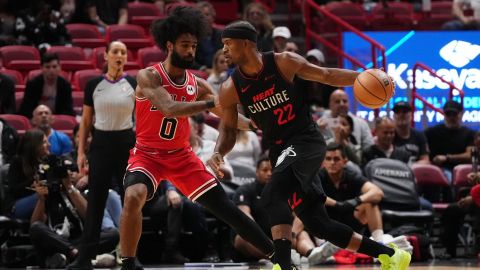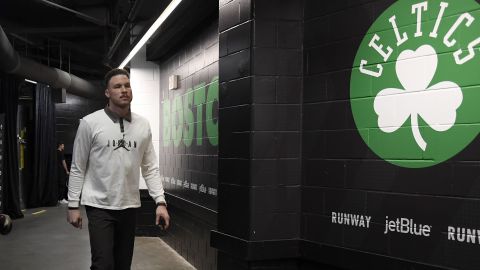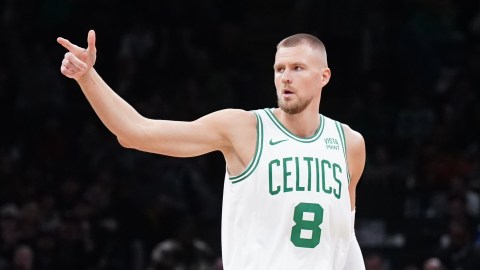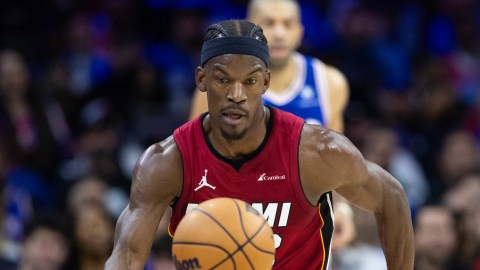 BOSTON — Courtney Lee is the same place before every game. The Celtics shooting guard sits at his locker, surrounded by empty stalls, having gotten in all the practice shots he needed earlier in the day. After each game, he dresses quietly, pausing to answer questions from the few reporters who break away from the scrums around Paul Pierce or Kevin Garnett.
BOSTON — Courtney Lee is the same place before every game. The Celtics shooting guard sits at his locker, surrounded by empty stalls, having gotten in all the practice shots he needed earlier in the day. After each game, he dresses quietly, pausing to answer questions from the few reporters who break away from the scrums around Paul Pierce or Kevin Garnett.
Lee, in other words, is eminently accessible for a professional athlete. So it was strange to see a report Thursday that an ESPN writer had learned through “back channels” that Lee was unhappy with the way the team played before Rajon Rondo went down with a season-ending ACL injury.
Lee was ticked. In his many interactions with the media, Lee has not expressed any unhappiness, other than with the inconsistent play that has frustrated everyone on the team. He responded in the quickest way he knew how — via Twitter — to assert he had no idea where the news came from. What could have become a minor controversy affecting team chemistry was quickly stamped out, thanks to social media.
The timing of the whole thing could not have been more perfect. Earlier in the week, Alan Siegel threw down the gauntlet against the Boston media establishment in a Boston Magazine article titled, “The Fellowship of the Miserable.” In the piece, Siegel outlined the ways in which long-tenured writers and belligerent talking heads were muscling out young, promising reporters with fresh ideas and a greater grasp for statistical analysis. He made several reasonable points about the changing landscape of sports media, even if his criticism was slightly off-target. One of the good, “young” writers Siegel singled out was the very writer who offered the Lee “news” in a podcast.
Then on Friday an online columnist called for Doc Rivers‘ job, writing that the coach is “no longer [the] right fit” for the Celtics. Neither of these writers is from “The Lodge,” the group of old-school reporters Siegel targeted in his magazine piece. Yet, indirectly, both incidents provided reminders of exactly why such experienced, shoe-leather sports journalists are so necessary even as declining newspaper circulations appear to say otherwise.
The job of a beat writer might seem obsolete to a lot of people, who can now follow their favorite teams down to the second without ever reading a game story or a notes column. But this is a narrow-sighted assumption. Breaking news does not magically appear on Twitter. It is posted by actual human beings, doing their jobs. The old-fashioned way.
The ESPN writer in the Lee situation, Zach Lowe, writes analysis — excellent analysis, in fact — and used to compile a sort of around-the-NBA rundown based almost entirely on the work of beat reporters. As invaluable as Lowe’s insight is, it cannot replace the very valuable task of being in the locker room, on the sideline or in the interview room. Nor does Lowe claim it can. But Siegel does, and therefore oversimplifies the point.
New ways of writing about sports do not replace all of the old ways. My opinions on the Celtics do not render unnecessary the work of outstanding beat reporters at the Globe or Herald. Asserting otherwise assumes there is one final, decisive word on Celtics-related matters, which is far from the case. Hopefully, I add to the spirited sports discussions that take place every day around New England. We in the sports media are each one voice, not the voice (well, unless you’re Bob Ryan or Jackie MacMullan).
Fans — the smart ones, anyway — learn which voices to respect by recognizing which ones are regularly around the teams. The opinion of a writer who had to look his subject square in the eye while asking a question, and then has to show up at the arena the next day, is elevated above that of a writer firing away from another city. Due to the nature of this job, this is something I am guilty of occasionally, but there are a couple of ingrained rules.
First, try not to call for anybody to be fired unless the manure has really hit the fan. Second, try not to psychoanalyze teams from afar — or at all, for that matter. It is one thing to make the factual statement that Jason Terry played well on Wednesday. It is another thing to claim Terry played better because he dislikes playing with Rondo because the two disagree over whether Michael Keaton or Christian Bale was a better Batman, or whatever. A trained therapist would not evaluate somebody via television, so we untrained sportswriters should probably avoid it as well.
In the media, nobody exists on an island. Prior to Friday’s game against the Magic, Lee was back at his perch, dutifully answering reporter’s questions like a professional. Still, it would be understandable if he were a bit more wary. He could not know which questioner might twist his words into a snappy headline or turn something he said in confidence into an unsourced “report.” Such suspicion risk further driving the wedge between athletes and reporters, and by extension the fans.
This is unfortunate, because new and old ideas should not work against each other, however unintentionally. Even in a new medium, the old rules of observing, asking and being fair should never go out of style.
Have a question for Ben Watanabe? Send it to him via Twitter at @BenjeeBallgame or send it he.



